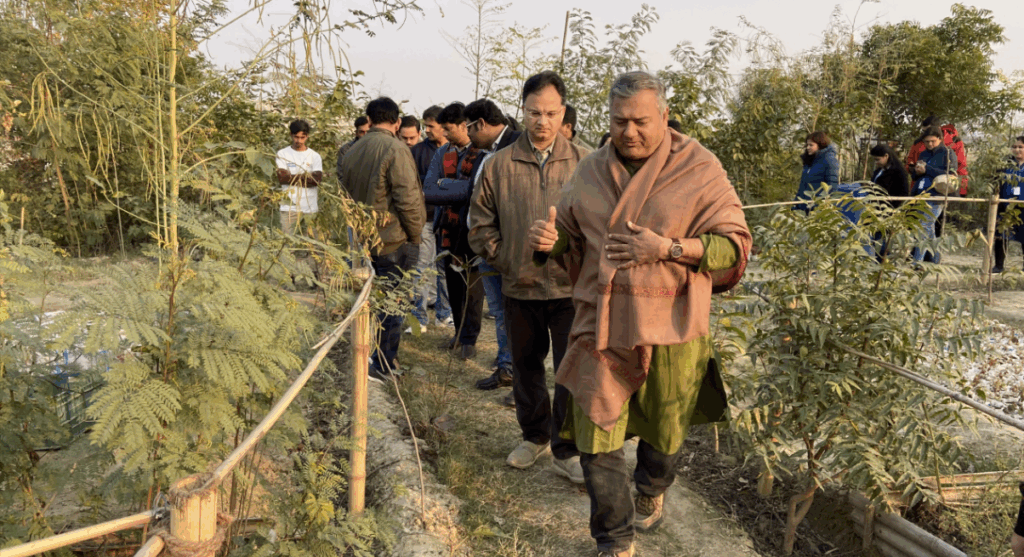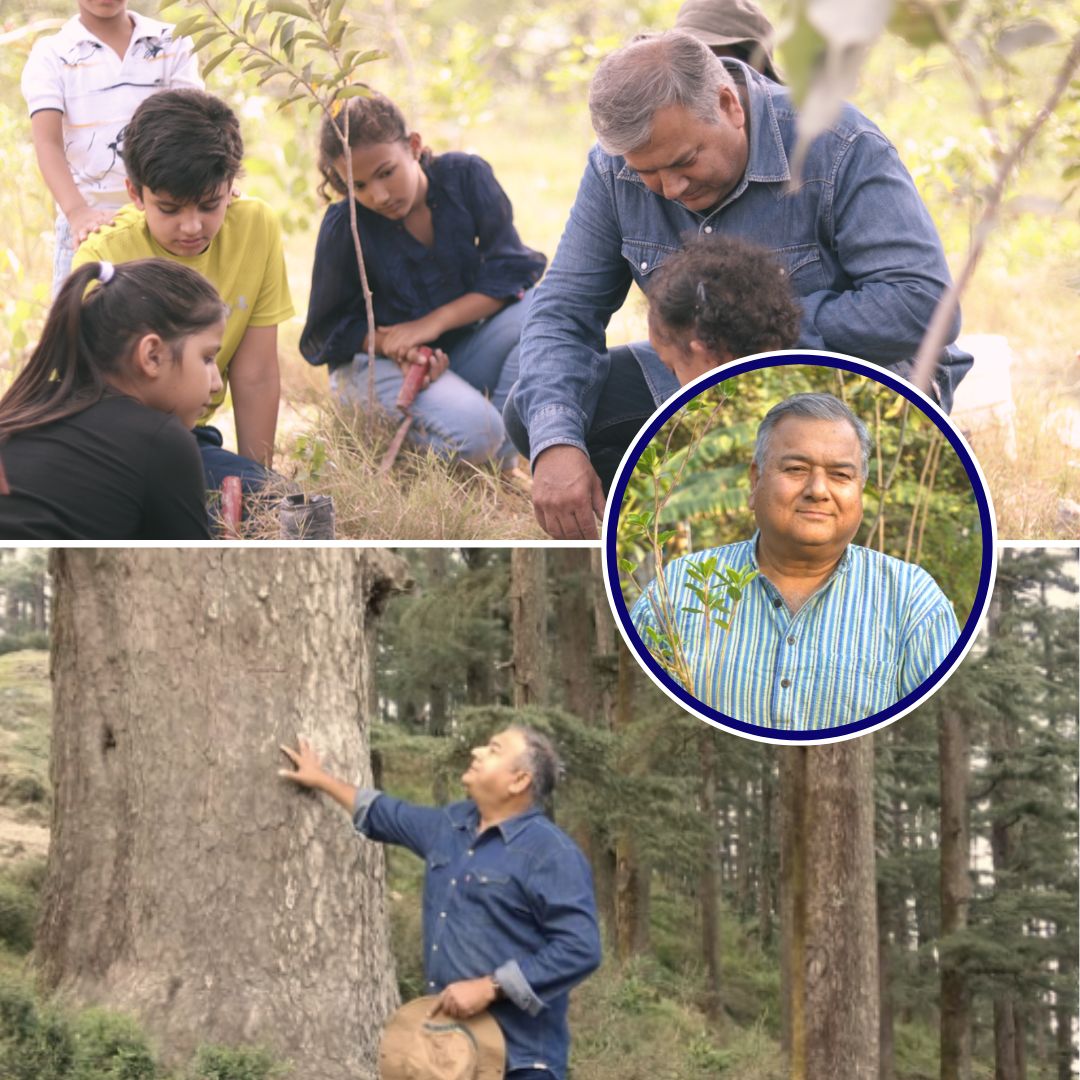Swami Prem Parivartan, better known as Peepal Baba, is a renowned environmentalist whose unwavering dedication to tree planting and conservation has spanned nearly five decades. Born Azad Jain in 1966 in Chandigarh, India, he became inspired at age 11 by his teacher to plant trees, marking the beginning of a lifelong commitment to the environment.
Over 45 years, he and his organisation, Give Me Trees Trust, have planted and nurtured over 24 million trees across 202 districts in 18 states. Peepal Baba embodies a unique blend of spiritual practice and ecological activism, viewing tree planting as both a sacred duty and a practical solution to ecological degradation.
Early Life and Philosophical Roots
Raised in a family with an army background, Peepal Baba pursued higher education in English literature and journalism while deeply engaging in Yoga and meditation. His association with the spiritual master Osho Rajneesh in 1984, who bestowed upon him the name Swami Prem Parivartan, shaped his spiritual outlook and environmental mission.
This fusion of ascetic discipline and environmentalism defines his approach to conservation, grounded in respect for nature’s intrinsic value and the peepal tree’s cultural symbolism in Indian traditions.
From planting his first trees in Pune in 1977, at Pune Military Station, he later started a hobby club by the name Give Me Trees. From one plant to creating a national movement, Peepal Baba’s path has been marked by perseverance and grassroots mobilization.

The Give Me Trees Trust and Nationwide Impact
In 2011, Peepal Baba formalised his efforts by founding the Give Me Trees Trust, which today mobilises over 17,000 volunteers. The trust has established more than 400 plant nurseries cultivating native species such as peepal, neem, banyan, and others that restore biodiversity and improve soil and water conditions.
Their initiatives extend beyond planting to educating communities on organic farming, soil biology, and climate resilience. The survival rate of saplings under this program is as high as 90%, a testament to the meticulous care and community involvement emphasised by the movement.
Urban centres like Delhi-NCR have seen transformational greening projects, with over 600,000 trees planted to mitigate air pollution and urban heat islands, supported by partnerships with corporate CSR programs and public figures.

Sustainability as a People’s Practice
At forums like TechHR India 2025, Peepal Baba emphasises that sustainability transcends corporate social responsibility; it is a conscious, collective human practice rooted in empathy and connection to nature. The Give Me Trees Trust integrates cultural values with modern ecological science, promoting a green consciousness that is participatory and inclusive. Volunteers document tree growth meticulously, fostering a sense of personal stake and accountability.
The trust’s work aligns closely with UN Sustainable Development Goals, addressing climate action, sustainable cities, and life on land. Their holistic approach also involves soil health restoration, waste management, and water conservation, demonstrating that ecological restoration requires multifaceted strategies and community empowerment.
The Logical Indian’s Perspective
Peepal Baba’s journey accentuates the power of individual commitment catalysing community-level engagement for environmental regeneration. His life’s work exemplifies that healing our planet is an ethical responsibility, achieved through peaceful coexistence and sustained action.
The Logical Indian celebrates his holistic vision that combines spirituality, science, and social mobilisation in pursuit of a greener, healthier future. The story invites reflection on how communities across India and globally can emulate such grassroots initiatives to create lasting ecological and social harmony.












